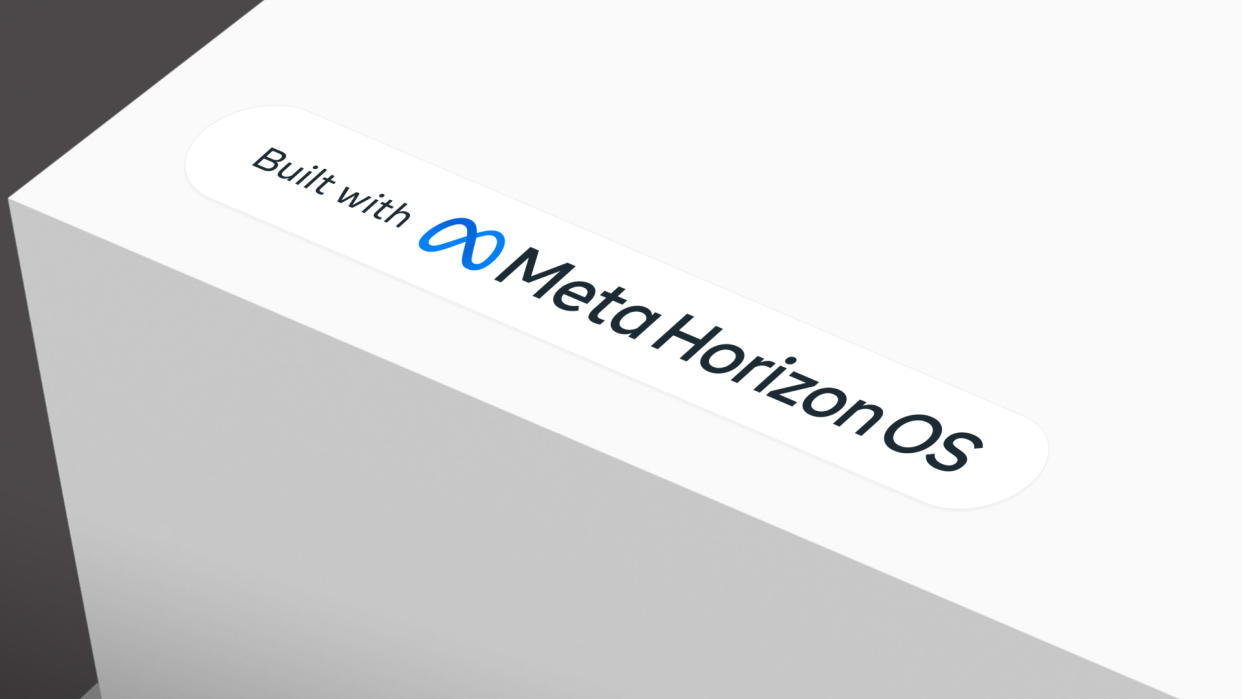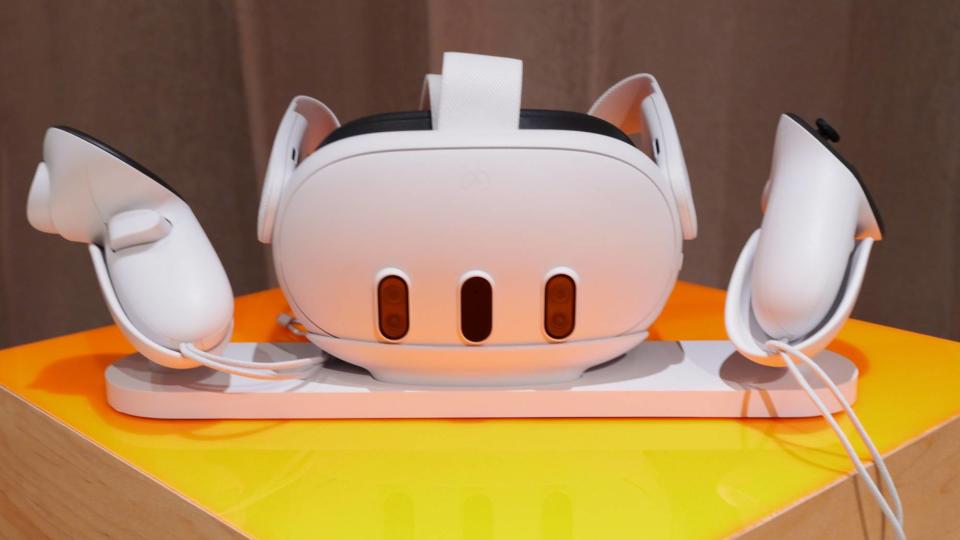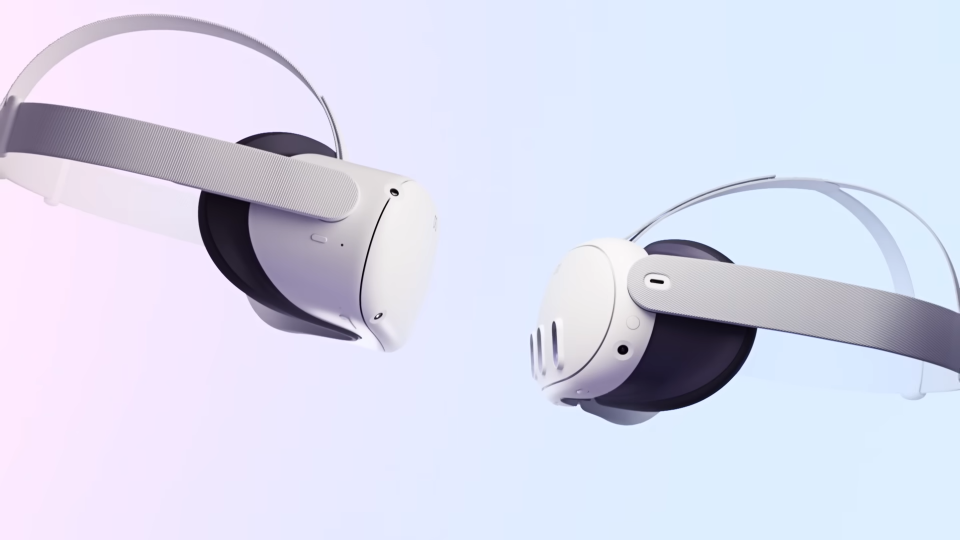Meta just took a bold step to try to beat Apple Vision Pro with Horizon OS

Meta announced in a press release on April 22, 2024, that it is launching an open mixed-reality operating system called Meta Horizon OS, which will power a new generation of headsets. The new OS already has support from ASUS Republic of Gamers, Lenovo, and Xbox. Meta is clearly hoping to position Horizon OS as the Android or Windows of the headset space in a move that could pose a major threat to the Apple Vision Pro.
Here's what you should know about Meta Horizon OS and how it could impact the headset market.
What is Meta Horizon OS?

In a press release, Meta announced Meta Horizon OS, an open mixed-reality operating system that other companies can use on their headsets. It's effectively the same operating system running on Meta Quest headsets today, only now anyone can use it. That also means that any apps and games developed for the Quest headsets should run on any headset with Horizon OS.
Android is the most obvious comparison to Meta Horizon OS and that's not a coincidence. Just like Android is the only competition for Apple in the smartphone market, Meta is the only competition for Apple in the headset space.
Launching an open operating system allows Meta to support many more headsets to compete with the Apple Vision Pro than it could produce itself. At the same time, other brands can benefit from the technological advancements Meta has already made, speeding up development so new headsets can get on the market sooner. Meta also gave us an exciting peek at the first wave of those headsets.
Horizon OS will power headsets from ASUS, Lenovo, and Xbox

In addition to Meta Horizon OS, Meta also announced today that it's collaborating with a few major tech brands to launch the first wave of headsets running the now-open OS. Each brand is making a headset for a specific niche, which is part of what makes this move so genius on Meta's part.
First, there are two new gaming-focused headsets in the works, one from ASUS's Republic of Gamers and another from Xbox. The ASUS ROG model is described as a "performance gaming headset," so it will likely sport a speedy processor and high refresh rate displays in each eye. Considering ROG's typical design style, there might even be some RGB.
The Xbox headset is actually a limited edition of the Meta Quest, building off Meta's earlier integration of Xbox Cloud Gaming on the Quest back in December 2023. This new headset will likely follow a similar design style to the Quest 3 but potentially with an Xbox-themed reskin and improved integration of Xbox Cloud Gaming. The ROG headset seems to be positioned as the more high-end gaming headset, so the Xbox edition Quest headset will likely be priced somewhere between the Quest 3 and the ROG headset.
Meta also announced a partnership with Lenovo, which will be developing a series of "mixed reality devices for productivity, learning, and entertainment." The press release references ThinkPads, which are staples of the business laptop space, so it sounds like Lenovo may be developing a headset designed for the workplace. A low-cost educational headset would also be a welcome addition to the Horizon OS line-up.
How Meta Horizon OS could transform the headset market

It's hard to understate the impact Meta Horizon OS could have on the headset market. At first glance, some might wonder why Meta would open the door for anyone to use its mixed reality operating system. However, this move makes complete sense for Meta.
First, it supercharges development of new headsets to compete with the Apple Vision Pro the way Android competes with iOS (or Windows with macOS). Meta got to the headset market before Apple and it's clearly not going to let its lead go to waste. More brands launching headsets with Horizon OS will bring more developers, users, and advertisers to Meta's platform.
Horizon OS also allows Meta to focus on software and reduces its reliance on developing and selling Quest headsets. Of course, it will likely continue making its own headsets much like Google maintains its line of Pixel phones and tablets.
However, Meta can now wield a strong influence in the headset market using its Horizon operating system. It makes sense that Meta would prefer to focus on software anyway because that's where the bulk of its data and revenue comes from. Shifting focus primarily to software also gives Meta more time and resources to refine the social aspects of mixed and virtual reality, which still need a lot of work.
Opening Meta Horizon OS also takes the pressure off Meta to create one-size-fits-all headsets. The first few partnerships they announced today already clearly show how different brands can use Horizon OS in different ways to suit specific market niches. We'll get more headsets built specifically for gaming, work, or school. That aspect of specialization allows each headset to be great at something rather than okay at a mix of things.
Finally, this move will hopefully spark a wave of innovation in headset technology. Competition breeds creativity and that's what I hope to see from the next generation of headsets running Meta Horizon OS. We'll have to wait and see what they end up looking like, but one thing's for sure: the Apple Vision Pro has some serious competition coming its way.
